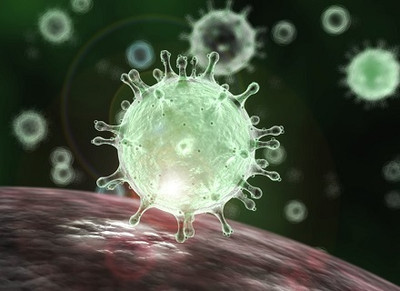Posted by James Hoad on 20th Feb 2020
What Is A Coronavirus?
A coronavirus is a type of virus. As a group, coronaviruses are common across the world. Typical symptoms of coronavirus include fever and a cough that may progress to a severe pneumonia causing shortness of breath and breathing difficulties.
Generally, coronavirus can cause more severe symptoms in people with weakened immune systems, older people, and those with long-term conditions like diabetes, cancer and chronic lung disease.
The novel coronavirus (2019-nCoV), informally known as the Wuhan coronavirus, is a new contagious strain of virus that causes respiratory infection and has shown evidence of human-to-human transmission, first identified by authorities in Wuhan, Hubei, China, as the cause of the ongoing 2019-20 Wuhan Coronavirus Outbreak
With 319 confirmed cases of this new strain of virus in the UK, fear is escalating particularly over the transmission ability, even though the risk of infection remains low.
So far only 4 deaths have been reported, proving the capability of UK healthcare upon early detection and effective quarantine of infected patients.
What Are The Symptoms Of The Virus?

As a group, coronaviruses are common across the world and as such produce virus-like symptoms. Typical symptoms of coronavirus include a fever and cough that over time may progress into a severe pneumonia causing shortness of breath and breathing difficulties[3].
Generally, coronavirus can cause more severe symptoms in people with weakened immune systems, older people, and those with long-term conditions like diabetes, cancer and chronic lung disease.
Is There Cause For Concern?

There are currently over 80,000 cases across Mainland China alone and over 111,000 confirmed cases across the globe. Whilst estimated figures suggest a fatality rate around 3%, this is indeed far below the actual fatality rate of confirmed cases. Out of 111,362 confirmed cases worldwide, recovered patients stand at 62,392 and deaths are reported at 3892[1]. Going off this data alone, the actual fatality rate works out at 6%. This rate is higher than what is being published however it is not too alarming.
What Is Being Done To Stop The Outbreak
From an epidemiological point of view, the risk of infection within the UK remains low. All 319 cases in the UK were infected outside the country or passed on from a household member who was infected overseas. Other travel-related cases in the UK can be expected, but as already demonstrated, they will most likely be identified very quickly and contained to be given comprehensive treatment. Advanced monitoring has been introduced in airports with direct flight from China as rotational teams of clinicians are on hand to support passengers.
Additionally the UK is now one of the first countries outside China to have a prototype specific laboratory test for this new disease. With the first reported publication of the genome sequence of a 2019 novel coronavirus, PHE was able to rapidly develop further specific tests for this virus, working with WHO and global network of laboratories[2].
When a clinician suspects the novel coronavirus (COVID-19), they take samples from the nose, throat alongside respiratory samples. This package is sent safely to PHE Colindale where the laboratory can produce a result for this specific virus on the same working day.
PHE also has the capability to sequence the viral genome and compare this to published sequences from China, if a case occurs. This will provide valuable information on any mutations in the virus over time and allow an improved understanding of how it spreads.
How To Stay Safe When Travelling
The WHO has advised on the use of N95 Face masks as a viable option in preventing the spread of the virus however not all face masks provide sufficient protection. With face mask stocks around the world selling out, it's important to correctly protective yourself with FFP3 rated masks. These have the highest level of protection on the market and are the only respirators that would provide sufficient protection against transmitting or being contaminated by the virus.
Carrying a travel hand sanitiser with you is also recommended to maintain good hygiene after contact with others or before meals.
------------------------------------------------------------------------------------------------------------------------------------------------------------
[1] Link
[2] Link
[3] Link




